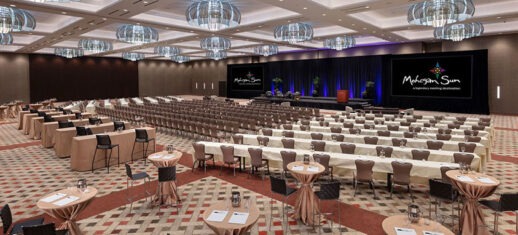The world around us is changing and the hotel industry is adapting with it. People want more from hotels—often, a simple bed and continental breakfast no longer suffice. New emerging technologies and attitudes are inspiring hotels to take on three new roles to provide extraordinary experiences for guests.
Hotel as Dream-Maker
Technology offers endless possibilities. James Canton, a renowned futurist, social scientist and former Apple Computer executive who now works for Institute for Global Futures, worked with Hotels.com to produce the “Hotels of the Future” study in January 2017. Canton says that as the hotel experience gears toward increasing personalization, anything a guest dreams of soon will be able to happen.
For example, Canton believes robotic butlers will be able to provide widespread service within the next few years. Like existing virtual concierges, these lean, nice working-machines will do everything from greet guests in their preferred language to offer companionship, clean rooms and provide room service, which will be specialized, based on the guest’s DNA. This will allow hotels to serve balanced meals that suit guests’ health and energy needs, while optimizing the taste for their tongue palette.
Canton also believes hotels could begin to offer immersive “worlds” for their guest to interact with, either in real-life or via virtual reality. These worlds, complete with story lines, characters and costumes, will become what Canton calls “alternative travel lifestyles.”
Hotel as Connector
In the future, hotels could also play a huge role in forming enriching bonds between guests to further elevate their experiences. In an eight-week study conducted using observations and in-depth interviews, Deloitte.com found that despite the rapid, ongoing development of technology, guests still desire human contact.
Ace Hotel in New York City is addressing this desire in its hotel lobby, warmly known as the living room, which serves as a wind down spot for guests. The lobby’s warm colors form a sense of synergy for guests to work together and socialize, either among themselves or with locals, as the space is open to the public. This gives guests the opportunity to meet others not directly involved with their event or meeting, thereby enabling them to expand their cultural and social viewpoints.
Hotels can also look toward co-living spaces as inspiration for the future. Places such as Airbnb commonly feature communal spaces, including a kitchen and living room, while maintaining privacy in a bedroom. In June 2016, Extended Stay Hotels announced plans to integrate more common spaces, such as the lounge and kitchen.
Hotel as Luxury Sustainer
Both millennials and older generations are starting to realize the negative consequences of waste, and in turn, are taking steps to remedy the situation. One antidote includes choosing eco-friendly hotels.
Soneva Resorts, with locations in the Maldives and Thailand, shows that you don’t have to sacrifice luxury for sustainability. It utilizes, rather than ignores, the nature around the property to transform their guests’ experiences. It attempts to use farm-to-table food, instead of imported foods, and creates a careful balance with the surrounding ecosystem.
Soneva’s location in Fushi is home to crabs that dig tunnels to provide oxygen to trees on the island. If guests ask to eat the crabs, Soneva refuses, because they are critical to life on the island. Soneva also recycles 73 percent of the solid waste produced on site and keeps a record of its sustainable initiatives’ impact through sustainability reports.




